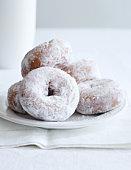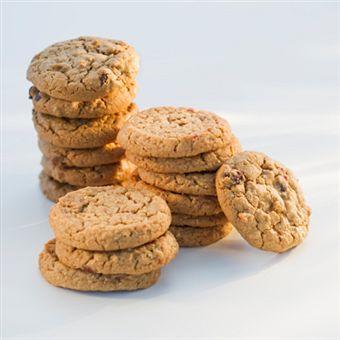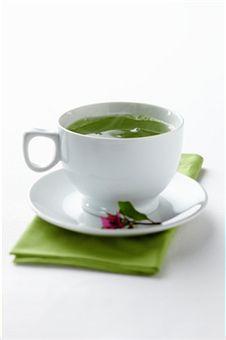Sugar consumption and cancer risk
It’s time for some unsweetened evidence
Sugar drives cancer. Fact. Some 11 years ago, I wrote my first article covering the dangers of common sugar to your health; particularly how it promotes inflammation in your body and feeds cancer cells. The research has been readily available for anyone to read. For ten years I’ve covered the risks and the evidence in detail in my book ‘Everything you need to know to help you beat cancer’. At one point I even wrote to the Royal Marsden stating the case against cancer patients consuming it.
 Yet ignorant ‘skeptics’ attack me, nurses frequently misinform patients that ‘nothing is proven yet’, and hospitals still sell sugar-rich drinks such as Coca Cola, Ribena and Sprite from vending machines outside every almost cancer ward. Hardly a hospital mealtime passes without ice cream being offered to patients.
Yet ignorant ‘skeptics’ attack me, nurses frequently misinform patients that ‘nothing is proven yet’, and hospitals still sell sugar-rich drinks such as Coca Cola, Ribena and Sprite from vending machines outside every almost cancer ward. Hardly a hospital mealtime passes without ice cream being offered to patients.

Worse, there is an ongoing mantra from UK doctors and Hospital dieticians alike that you need to eat cake, and sticky buns and drink milky, sugary tea when you are having chemotherapy to avoid cachexia (losing weight to the point the chemotherapy, not the cancer, kills you). Such ‘advice’ was even provided in booklets by NHS cancer centres in the UK, and featured little drawings of milk shakes and cheeseburgers.
It was completely at odds with recommendations from nutritionists like Dr Lawrence Plaskett, a biochemist who even in the 1990s was extoling the virtues of foods such as apples, onions and carrots for their beneficial natural compounds in the fight against cancer. Common sugar and salt were forbidden But Plaskett simply studied all the available research in depth – now others are catching up with his findings.
For example, the new advice given by American cancer hospitals such as MD Anderson in Texas and Memorial Sloan Kettering in New York is that you should avoid red meats, saturated fats and empty sugar calories and eat a healthy diet of ‘plant based foods such as fruit and vegetables, nuts, seeds and grains’.
Also, if cachexia is the fear of ‘experts’ in the UK, has no one read the research studies from America on fish oils and how they help prevent it? Frankly, for a number of important reasons, fish oils are an essential supplement for all cancer patients (unless they have some extra problem with their heart).
Cancer cells need glucose
The evidence is clear: For example, there is an abundance of research linking higher blood glucose levels with increased breast cancer risk (e.g. The role of glucose in breast cancer occurrence; Int J Cancer 2011; or another: Cancer Epidemiology Biomarkers 2002.)
Blood glucose levels are also inversely linked to survival times. The higher the blood glucose the more likely recurrence and the less is survival (For example, Fasting blood glucose levels and non-small cell lung cancer; Luo J et al Lung Cancer 2012, May; or another: PLOS one, Michael Fuchs et al; June 17, 2014).
In this last study referenced above, the researchers concluded: ‘Higher sugar-sweetened beverage intake was associated with a significantly increased risk of cancer recurrence and mortality in Stage III colon cancer patients’.
There are a dozen or more studies on each of these areas (prevention, recurrence, survival) and a variety of cancers if you search the Internet for 5 minutes. It is simply not true to say ‘nothing is yet proven’.
If you have higher blood sugar levels you are more likely to develop cancer. If you already have cancer, and you have high blood glucose levels you will reduce your chances of survival.
The ‘sweet tooth’ of cancer

So, why would higher blood levels of glucose be linked to more cancers, and to more recurrence and lowered survival?
Let me start by quoting the top American cancer body, the National Cancer Institute. ‘One of the fundamental differences between cancer cells and normal cells is how they break down (metabolize) nutrients to obtain the energy they need to grow and survive’.
They explain that normal cells are flexible: ‘they rely on oxidative metabolism of glucose, fatty acids or amino acids to produce energy’.
However, ‘cancer cells have defects in mitochondrial oxidative metabolism’. ‘This leads to the production of potentially harmful molecules known as reactive oxygen species’. As a result they ‘use another metabolic process called glycolysis to break down glucose’.
Cancer cells are inflexible – ‘they need high levels of glucose because their energy production system is inefficient and they need it to detoxify the reactive oxygen species’. They cannot use fatty acids for metabolism, and rarely amino acids. It’s glucose or death.
‘Carbohydrates in the diet provide a readily available source of glucose that can be used to fuel cancer cell growth’.
In another report (Curr Opin Clin Nutr Metab Care 2010, July 13 (4) 466-70), NCI resources go further on this subject; for example, how ‘increased glycolysis can render tumour cells more resistant to apoptosis’ (cell death). And how ‘interfering with aerobic glycolysis represents a potentially effective strategy to target cancer cells’.
The article goes on to talk about the acid nature of cancer cells and tumours; and how alkalising the body (they suggest strategies such as diet and/or taking sodium bicarbonate) might be of benefit.
Bad diet promotes cancer: Fact
An NCI team led by Dr Young S. Kim conducted its own research (2012; Cancer Watch pg 3391) into cancer stem cells, which lie at the heart of most, if not all, cancers.

In the preamble they stated that there is no drug currently available known to kill these cancer stem cells. Chemotherapy can knock the tumour back up to 70 per cent – but eating a bad diet - yes, you’ve guessed it - full of sugar and junk fats actually encourages a tumour to regrow. Whereas a healthy diet containing bioactive natural compounds (like curcumin, piperine, resveratrol, vitamin E, genistein, EGCG from green tea, choline and more) actually prevents the tumour re-growing.
Hardly surprising, but good to know that, yet again, research evidence is available.
If you are already thinking of supplementing with these you many like to look at what Natural Selection has to offer by clicking here
Fast forward
Also in 2012, The Oncologist magazine covered American research – in both the journal and in the editorial – on the finding that calorie restriction (eating 15% less calories than you need) actually improved the success of chemotherapy and radiotherapy.
Exciting news, but quite the opposite of the sticky buns and chocolate cake in UK advice.
A number of American commentators observed that the research results were not that surprising. Ayurvedic medicine has used fasting as an initial approach to cancer for years – it lowers blood glucose, growth hormone, oestrogen and insulin levels. All three hormones have been implicated in driving cancer. Calorie restriction has smaller effects and research shows that it also prompts an increased level of sirtuins – hormones that protect animals in situations of food deprivation. Increased longevity and health has been a known benefit for over 50 years.
The American NCI is particularly interested in studying calorie restriction and/or fasting with chemotherapy. They have shown that diet can help – or hinder – both the uptake and effectiveness of drugs. For the NCI, fasting may well be a way of helping chemotherapy deliver better results, with less side-effects, and more cost-effectively by needing lower doses of drugs.
They quote the work of Dr. Valter Longo, Professor of gerontology and biological science at the University of Southern California (USC), who in various studies since 2008 has shown that fasting for two to three days protected healthy cells (in both cultures and living mice with cancer tumours) from chemotherapy drugs without protecting cancer cells. They called this ‘differential stress resistance’.
In mice with cancer, fasting plus chemo significantly increased survival times and cut metastases.
The UCS team showed that mice with brain tumours and who fasted had a 20 to 40 per cent longer remission period.
A long, long way away from UK booklets featuring cheeseburgers!
The researchers then published a study of 10 elderly cancer patients who voluntarily underwent short-term fasting before and/or after chemotherapy. The patients reported far fewer side-effects. In 2012, in response to arguments that fasting might promote cancer growth, the same team produced further research (Science Translational Medicine; 7 March 2012) showing that fasting makes cancer cells more sensitive to chemotherapy. Fasting actually stopped cancer cells producing protective proteins from their mutated genes, while healthy cells made more protective proteins. As a result the healthy cells stop dividing and are less attacked by the chemotherapy resulting in less side-effects. In some combinations of fasting and chemotherapy the tumours actually disappeared.
The conclusion was clear: fasting can improve drug effectiveness and reduce the side-effects of chemotherapy.
But the team identified a second factor working against the cancer cells: Fasting deprives a cancer cell of glucose. Dr. Longo describes these as two stressors acting simultaneously.
Indeed, in animal studies (mice with implanted breast cancer, melanoma or glioma cells) short-term fasting alone delayed tumor growth to the same extent as treatment with the drug cyclophosphamide!
Complementary therapies increase survival
Calorie restriction and fasting both lower blood glucose levels. As does exercise.
And in 2012, the American Cancer Society produced a review of all research into complementary therapies and commented that there had been an explosion in such research, and that complementary therapies like diet, weight control and exercise, each increased survival and could prevent cancer recurrence.
Over two thirds of CANCERactive readers employ two or more complementary therapies. I think it is no co-incidence that survival rates are increasing. 20 years ago, hardly anyone thought that self-help was an important treatment strategy.
If plasma glucose levels are low (for example, you having been jogging for 30 minutes and reduced the glucose circulating in your blood), healthy cells are flexible and so switch to fats as the fuel source. Certain cells like brain cells seem to prefer to burn fats. There is a growing body of evidence that glucose-rich diets, in effect, ‘poison’ brain cells and can lead to illnesses like dementia.
Burning fats in healthy cells is called ketosis.
The Ketogenic Diet
The ketogenic diet is already used with effect in patients with epilepsy and other neurological problems. It is currently being studied for use with Parkinson’s and Alzheimer’s patients.
What is it? A ketogenic diet limits carbohydrate and thus sugar in the diet to very low levels; it restricts protein but increases fat consumption. It is not necessarily a calorie restriction diet per se. Fats yield four times the calories per gram when compared to carbs. Be lear - we are not talking dangerous trans fats but ideally ‘good’ fats like those from olive oil, fish oils, nut and seed oils (e.g. coconut, walnut, flaxseed) and avocados.
You can even eat some saturated fat – but that’s another story.
In America scientists wanted to hold large scale clinical trials on chemo- (and radiotherapy) whilst the patients fasted.
Ah, but there’s a problem. When it came to recruiting subjects for the trials, 70% of Americans didn’t want to go on a fast.
So someone had a bright idea to develop a food that was low in carbohydrate (and thus sugar), moderate in protein and high in good fats. It was called KetoCal. Not quite fasting, but a diet that cut down the carb calories significantly. A ketogenic diet by any other name!
Hitherto, clinical research on such a diet has only taken place with animals – but results have been impressive and clinical trials have now started in America with humans. One study (by Professor of Biology, Thomas Seyfried of Boston College and Dr Dominic D’Agostino, Assistant Professor of Molecular Biology, University of South Florida, America’s two experts on the ketogenic diet) involved rats given metastatic cancer – they have a normal survival rate of 8%. But put on a Ketogenic diet, survival went to 56%. When some of them were also given Hyperbaric Oxygen, the survival rate rose to 77%).
 So, currently a number of clinical trials are starting with humans and tackling each of calorie restriction, fasting and ketogenic diets with and without orthodox treatments. This is a very long way from sugary tea, milkshakes, cheeseburgers and cream cakes!
So, currently a number of clinical trials are starting with humans and tackling each of calorie restriction, fasting and ketogenic diets with and without orthodox treatments. This is a very long way from sugary tea, milkshakes, cheeseburgers and cream cakes!
The paradigm shift is starting
With a Regional Health Authority in Australia announcing it is to ban soft drink sales in schools, came visuals of sugar cubes in front of each bottle to show exactly the problem:14 cubes in a can of Coca Cola, 7-15 for others. Behind was a backdrop showing the logo of the Australian Cancer Council.
In the UK in recent months the ‘sugar-is-bad-for-you’ story has cut fizzy soft drink sales already.
But, in fact glucose isn’t the real constituent of such drinks - high fructose corn syrup (HFCS) is. And in Cancer Watch we have covered several new studies showing how this ‘sugar’ seems to be even worse at promoting cancer than common glucose.
Metabolic diseases and sugar
But let us remember that general health recommendations in the UK have long been to cut empty calories and a sugar-rich diet. There is a list of illnesses attributed to sugar and its negative effects on human metabolism.
For example, HFCS breaks down in the body to uric acid, and this can increase your blood pressure significantly. Interestingly, glucose consumption has been shown to increase absorption rates of HFCS into the body.
In Spring 2014, research showed just how high ‘sugar’ consumption is and where the dangers lurk.
In 2012, nearly 60 % of Americans had their lives cut short by Heart disease, strokes, cancer or diabetes. And one of the prime ‘causes’ is ‘added sugar’.
The research was actually primarily concerned with Cardiovascular disease (Published in JAMA Feb, 2014) and argued that levels of ‘added sugar’ should be no more than 8% of total calories consumed. But 71% of American adults derive over 10% of their calories from added sugar, while slightly over 10 per cent get more than 25% from this chemical.
Those who consume 21% of added sugar are more than twice as likely to die from heart disease as those keeping to below 8%. If you go past 25% your chances of dying from heart disease are TRIPLED.
Let me give you some idea where that ‘empty, added’ sugar is coming from:
* Fizzy soft drinks, fruit drinks such as Ribena (37%),
* Supermarket fruit juices, smoothies (8.9%)
* Ice cream, dairy deserts (6.1%), grain deserts (13.7%)
* Biscuits, cakes, chocolate bars (5.8%)
* Prepared foods, processed foods, ‘health foods’
* Refined pasta, rice, bread, grains
* Honey, jams
Which foods give you the sugar?
We know high sugar diets are linked with insulin rushes and higher levels of type-2 diabetes. We now know (thanks to Doctor experts such as Chauncey Crandall of the Palm Beach Cardiovascular Clinic), that even saturated fat is not so bad after all – it is sugar that causes (via insulin) inflammation in your arteries. If there were no inflammation, the fat would not necessarily ‘stick’ and build up bring atherosclerosis and heart problems.
Inflammation is now seen as the culprit for many chronic diseases – cardiovascular and heart disease, dementia, diabetes, arthritis, cancer. The list seems endless.
And behind it all the new thinking all points to sugar, insulin and insulin resistance.
If you are hoping to prevent one of the above diseases, one can of fizzy soft drink a day is too much according to the research. Your maximum should be about 5 teaspoons of added sugar a day.
Let’s put this in context – in teaspoons per serving:
Average breakfast cereal (no milk) 3-8
Average supermarket fruit juice 5-9
Supermarket Smoothie 7-12
Chocolate bars 6-14
Cake. Choc biscuits 6-15
Fizzy soft drinks 12-14
Supermarket prepared meals 8-20
Sweet Popcorn 30-40
In fact, Crandall point to ice cream as one of the worst foods you can eat – all that sugar to start the inflammation off, then all that fat to block the arteries.
 Are you giving your cancer its sugar fix?
Are you giving your cancer its sugar fix?
Let’s get back to cancer. The truth is, ‘Would you really want to consume any added sugar, when your cancer has such a penchant for it?’
You want to beat cancer. You want to increase your personal odds of survival and prevent a recurrence. The evidence is building up, even if the final clinical trial results are not yet in. Consume empty carbs and sugar at your peril.
There seems a benefit in calorie restriction, and/or fasting, and even a ketogenic diet.
But there certainly seems little to no benefit in pouring sweetened soft drinks, supermarket smoothies, cakes, chocolate bars and so on, down your throat if you have cancer.
It’s not your body’s craving for sugar – it’s your cancer’s.